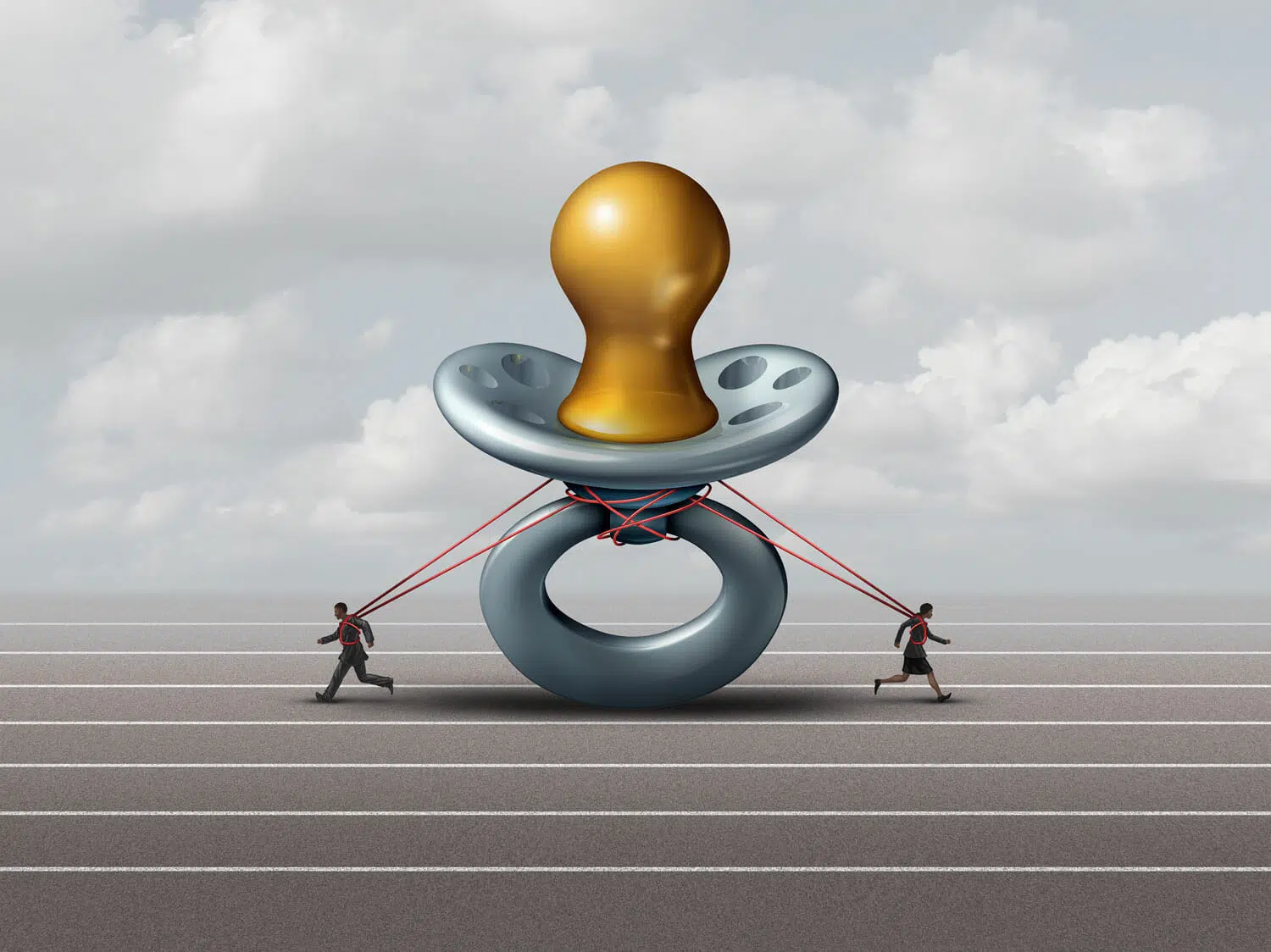A popular riddle of decades ago recently resurfaced, in which a father and son are injured in a car accident; Dad is out of commission, and the son is wheeled into the operating room. The surgeon takes a look and says, “I can’t operate on my own son.” Decades ago, this riddle1 turned on the radical thought that the surgeon was the child’s mother (revolutionary for the 1970s). Today, the surgeon could be the Mom or even a second Dad. So we have a different, more pertinent riddle for you: When could you have custody over a child who does not live with you?
One Virginia, Two Types of Custody
The great Commonwealth of Virginia is one state with two very different types of custody:
- Physical custody
- Legal custody
Physical custody over your child means the child lives with you, and you are responsible for the care, feeding, cleaning, clothing and nurturing of the child (You know, being a Dad). The law is supposed to be gender neutral on determining physical custody, but often the mother is seen as being the better caregiver for the best interest of the child.
Each of these types of custody can break down into two additional types:
- Joint physical custody
- Sole physical custody
- Joint legal custody
- Sole legal custody
Joint custody (of either physical or legal custody) means you and your ex-wife share responsibility for your children. Sole custody means one parent has primary responsibility for the care of your children.
Adding to the confusion, one parent could have sole physical custody but share legal custody with the other parent.
Legal Custody Explained
Legal custody of a child is not the same as physical custody. The term does not mean some other form of custody is illegal — it is differentiating between legally binding issues (legal custody) and day-to-day maintenance (physical custody) of the child.
Think of the everyday activities, decisions and options you provide for your child. What sports programs will she attend? Does he like gymnastics? What religion (or no religion) do you subscribe to and encourage for your child? Does the dentist recommend metal braces or the invisible kind? What about that strange mole on your child’s back — should you be worried?
All of those decisions you make (hundreds a day, really) are legal decisions. Legal custody refers to those specific decisions. It involves the life-altering choices you as a parent have to make:
- Religion
- Extracurricular activities
- Schooling
- Medical, dental and vision care
Yes, a Child’s Age Matters with Custody
A child of two or three has zero control over decisions regarding her or his life. The parents (whether married, divorced or simply living together) make all the decisions. Food, clothing, entertainment … everything is chosen by parents. When Mom and Dad divorce, the same constant stream of decisions falls principally to one parent, the one with physical custody, unless joint physical custody is granted by Virginia’s Juvenile and Domestic Relations District Court.
As a child ages, decisions become less mundane (though the food/clothing/TV watching choices and conflicts may increase) and more legally significant. From around five to early teens, children have to attend school, develop outside interests, and grow through significant bodily changes. All these processes require parents to make weighty decisions:
- Type of schooling (public, private, parochial)
- Religious upbringing (Protestant, Catholic, Jewish, Muslim, agnostic)
- Hobbies (cars, bikes, chorus, band, drama, fishing, hunting, dance, gymnastics, camping)
- Social interactions (Scouts, clubs, church groups, dances, Junior Cotillion)
- School sports (basketball, wrestling, and skiing in winter; track & field, softball, baseball, tennis, golf and lacrosse in spring; football, cheering, cross country racing, volleyball in fall; summer practices)
- Medical issues (development; sexuality; height and weight; sprains, strains and fractures)
- Dental issues (wisdom teeth extraction; braces and other orthodontics; fluoride protection)
- Vision issues (regular eye examinations, glasses or contact lenses)
In later childhood years, you as the parent also have added responsibilities to protect and encourage your child:
- Jobs
- Higher education, military service or trade school
- Sexual behavior
- Driver license and the rite of passage of a first car
In many ways, physical custody is the easier of the two types of Virginia child custody, because issues arise and are resolved quickly. Breakfast, pack a lunch, wear this to school, brush your teeth — it is a never-ending stream, but they are small problems.
Legal custody bites off big, life-altering challenges with long-lasting repercussions. Parenting is tough; parenting after divorce is tougher; parenting with sole legal custody is probably the toughest job a Dad can do.
Sometimes the Rubber Hits the Road
We have avoided the most serious aspect of legal custody so far, but it must be met head-on: in the event of a major tragedy, the parent with sole legal custody has the weight of a real life-or-death decision on his or her shoulders. The parent to whom the Virginia courts saw fit to grant sole legal custody may, at some terrible low point, have to make a decision regarding the very life of a child. The other parent may protest, but legal custody extends to this most awful of choices for any parent.
When faced with the enormous weight of legal custody, you cannot carry the burden alone. You can actively seek your ex-wife’s input, find religious or psychological counselors, and talk over things with family members. Most important, seek qualified legal help, always, but especially when you have to make monumental decisions affecting your own children.
Call the Custody Lawyers for Fathers
Please call The Firm for Men at 757-383-9184, or contact us online, to learn more about the complexities and nuances of legal and physical custody of a child. We, like the Virginia courts, want what is best for our Virginia children. At The Firm for Men, we also look out for the best interests of Virginia’s fathers.
[1] https://www.bu.edu/today/2014/bu-research-riddle-reveals-the-depth-of-gender-bias/


